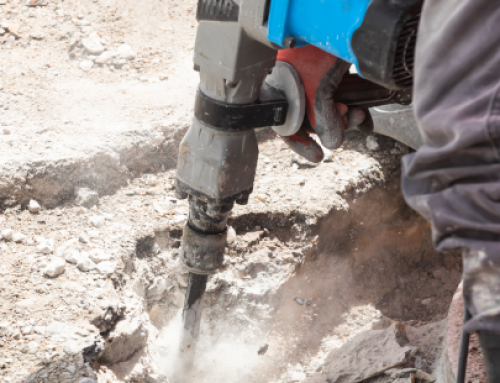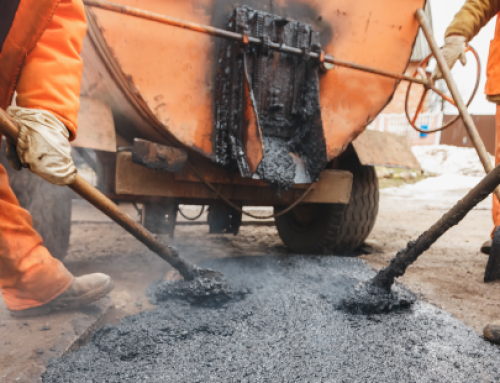Since most asphalt looks the same, many people assume that all asphalts are made the same way. Different mixes of asphalt are needed for various residential and commercial projects.
For the success of every asphalt project, it’s essential to find the right mix. Different types of asphalt provide different results and are used for different projects. It takes knowledge and experience to get the right combination of asphalt to deliver the best results.
All asphalt is a mix of coarse aggregate stone, sand, fine aggregate, and petroleum-based asphalt cement. Mixes are determined by the mixing process, the temperatures used, and how hot the asphalt is when it’s laid down.
3 Main Asphalt Mixes:
1.Hot Mix Asphalt (HMA)
The “standard” type of asphalt is HMA. The aggregate materials and binding material are heated to 280-325 degrees Fahrenheit and laid down while the asphalt is still extremely hot. Since cold winter temperatures can cause the base to cool too quickly, HMA must be laid when the outside air temperature is above 40 degrees.
This type of asphalt is most commonly used in the United States for highways, interstates, and roads because it is flexible, weather-resistant, and repels water. HMA is also great for driveways because it’s strong, durable, low maintenance, and easy to repair.
2. Warm Mix Asphalt (WMA)
Warm mix asphalt is a compromise between hot and cold and is a newer form. WMA is manufactured at temperatures between 200 and 250 degrees Fahrenheit. Since WMA is manufactured and shipped at lower temperatures, it doesn’t cool as fast as HMA. This feature allows WMA to be hauled over longer distances and laid in cooler temperatures.
WMA pours easier, spreads well even at lower temperatures, and is able to thoroughly set even though it uses fewer petroleum products than HMA. It is currently used in about 30% of all paving projects. WMA is a greener process that has less impact on the environment with reduced greenhouse gases and hydrocarbon emissions. Because of its lower temperature, it’s also safer for construction workers to use. It can be safely used in tunnels, and on days when air quality is low and other types of paving jobs and asphalt resurfacing would be postponed.
Warm mix asphalt is less costly to produce than hot mix asphalt. It is efficient, durable, and versatile and can be used to pave roads, interstates, highways, walking paths, driveways, and cart paths.
3. Cold Mix Asphalt (CMA)
Cold mix asphalt is the most basic type of asphalt and doesn’t require any heating. It’s a blend of oils and additives that make it possible for the asphalt mix to be stored and laid down cold. CMA is not as strong as HMA, but it’s more affordable and can be an excellent choice for temporary fixes.
CMA is typically used for repairs, small-scale patches, or lesser-used surfaces. Since it doesn’t require heating, bags of asphalt can be poured directly on cracks or potholes to prevent the damage from spreading. CMA stays soft in cold temperatures and repels water, so it will drive water out of the pothole and attach to the surface underneath.
Premium Asphalt Paving & Sealcoating is your local source for all your asphalt paving needs. Our incredible team of asphalt pavement experts can help you determine which mix is right for your paving job. Give us a call today at 979-289-7811 or request a free estimate for your next commercial or residential project.








